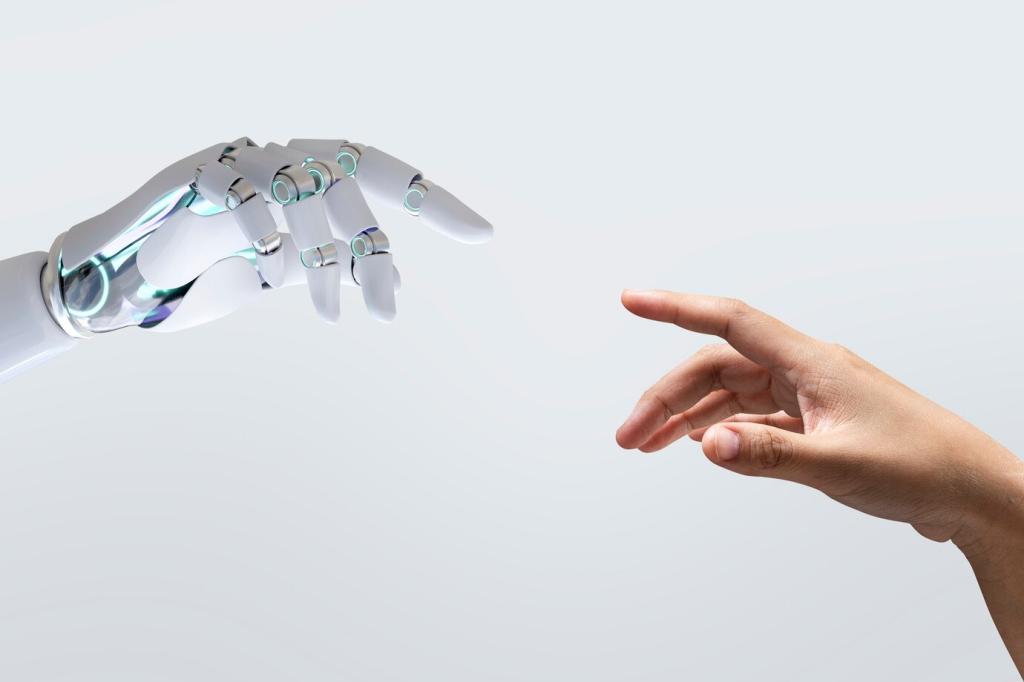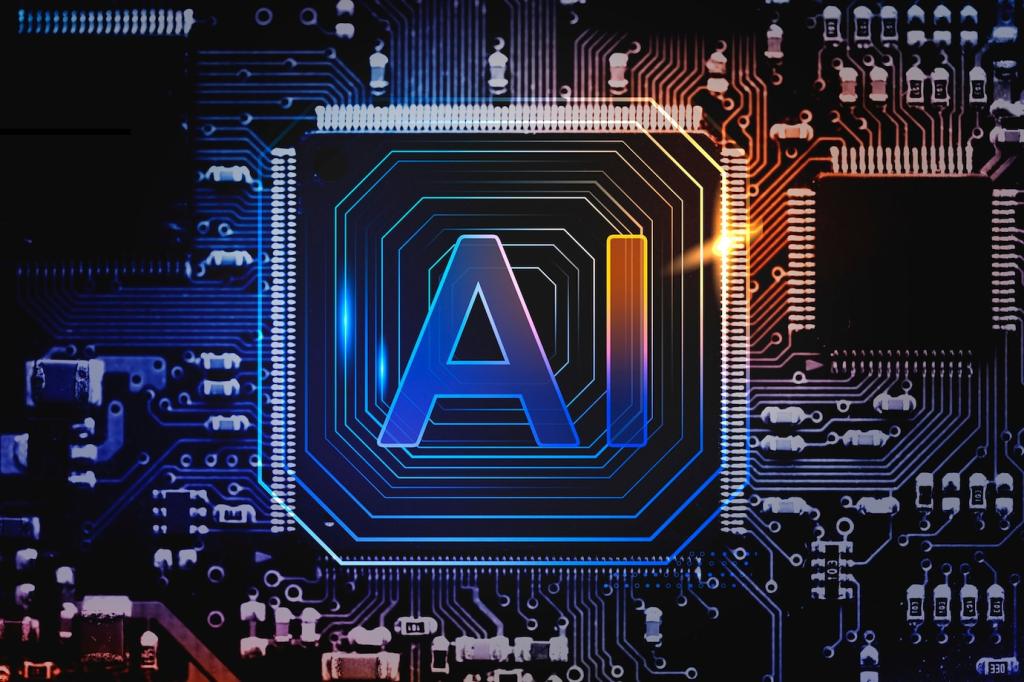AI-Driven Innovations in Healthcare
The intersection of artificial intelligence and healthcare has catalyzed revolutionary changes across the medical landscape. AI-driven innovations are not only enhancing patient outcomes but also transforming service delivery and operational efficiency. This comprehensive exploration delves into the advancements, applications, and ethical developments redefining modern medicine. From diagnosis and treatment to personalized medicine and administrative streamlining, discover how AI is shaping a new future for healthcare worldwide.
Intelligent Diagnostics
Artificial intelligence is revolutionizing radiology by offering automated interpretation of X-rays, CT scans, and MRIs. Sophisticated algorithms analyze complex medical imagery to identify anomalies that might elude even experienced radiologists, such as early-stage tumors or microfractures. By doing so, AI not only accelerates the diagnostic process but also ensures consistency and reduces the burden on healthcare professionals. This technology is especially valuable in under-resourced settings where expert radiologists may be scarce, providing timely and accurate results to expedite patient care.
AI-driven pathology tools are changing the way tissue samples are evaluated. Using deep learning, these systems can scan histopathological slides and classify various types of cellular structures and irregularities. The result is a more precise identification of diseases such as cancer, enabling healthcare providers to determine severity and devise targeted treatment plans. This high degree of accuracy enhances patient outcomes and also contributes to more effective medical research by generating vast, annotated datasets for future studies.
Modern healthcare settings are integrating AI systems capable of offering real-time decision support to clinicians. By analyzing electronic health records, lab results, and current symptoms, these tools suggest probable diagnoses and recommend relevant tests or treatments. As a virtual assistant, AI empowers medical professionals to make informed choices at the point of care, minimizing errors and boosting overall diagnostic confidence. This supportive role streamlines workflows and positively impacts patient safety.
Personalized Medicine and Treatment Planning
Genomic Data Interpretation
The surge in genomic data has necessitated powerful analytical tools, and AI is stepping up to meet this challenge. Advanced algorithms interpret the intricacies of individual genomes, finding mutations or markers associated with disease predisposition and progression. These insights enable providers to offer personalized screening programs and precision therapeutics, factoring in a patient’s unique genetic makeup. In cancer care, for example, AI highlights the best-matched targeted therapies based on a patient’s tumor genetics, thereby improving survival rates.
Treatment Response Prediction
AI models are being leveraged to predict how patients will respond to specific medications or interventions. By integrating clinical data, patient history, and genetics, the technology refines therapeutic choices, minimizing trial-and-error approaches. This capability revolutionizes conditions like depression, where AI can suggest antidepressants most likely to yield positive outcomes for a given individual. The result is a more consistent efficacy, reduced side effects, and accelerated recovery times across a broad spectrum of diseases.
Adaptive Therapy Optimization
Continuous patient monitoring, powered by AI, is leading to the development of dynamically adaptive treatments. By processing data streams from wearable devices, electronic health records, and imaging, AI systems tweak treatment plans in real time. For chronic illnesses, such as diabetes, AI adjusts medication dosages and lifestyle recommendations to maintain optimal health. Physicians are thus equipped with an evolving toolkit, enhancing patient adherence and improving quality of life.
Drug Discovery and Development
Traditionally, pharmaceutical companies have relied on labor-intensive and time-consuming screening processes to identify drug candidates. AI-driven systems now predict the biological activity of hundreds of thousands of molecules rapidly by learning from existing compound libraries. This computational screening drastically narrows down the pool of viable drugs, focusing research and laboratory efforts where they are most likely to succeed. The outcome is faster discovery timelines and reduced development costs.
AI is transforming clinical trial design by analyzing patient demographics, genetic profiles, and health histories to select trial participants more likely to benefit from new therapies. This data-driven matching leads to more robust studies with higher success rates and better safety profiles. Additionally, AI monitors and evaluates real-time trial data to detect early trends and adverse effects, allowing researchers to quickly adapt protocols and safeguard participants’ health and the integrity of trial results.
Another area of innovation is the application of AI to identify existing medications that can be repurposed for new diseases. By analyzing chemical properties, mechanisms of action, and real-world evidence, AI uncovers hidden therapeutic potentials in well-known drugs. This approach shortens the timeline to approval and delivers effective treatments for urgent health threats, as seen during recent global health crises. Such advancements make pharmaceutical development more agile and responsive.

Remote Patient Monitoring and Telehealth
Continuous Health Data Analysis
Wearable devices and home healthcare tools now routinely gather real-time health metrics, from heart rates to glucose levels. AI processes this constant data flow to identify deviations from a patient’s established norms, flagging potential health issues before they escalate. This proactive monitoring ensures timely intervention, helping patients and caregivers manage conditions like hypertension or diabetes with greater confidence and improved outcomes.
Virtual Health Assistants
Virtual assistants powered by AI are increasingly guiding patients through daily health management. These intelligent applications offer medication reminders, symptom checkers, and lifestyle recommendations tailored to individual needs. They bridge gaps in care, particularly for patients with limited access to healthcare providers. By fostering patient engagement and adherence, virtual assistants are proving invaluable in preventive healthcare and chronic condition management.
Intelligent Triage in Telemedicine
AI-driven triage tools are optimizing telehealth interactions by swiftly assessing patient-reported symptoms and prioritizing care delivery. These tools recommend whether a virtual consultation is appropriate or whether in-person evaluation is urgent. This not only streamlines provider workflows but also ensures that critical cases receive expedited attention. As telemedicine becomes mainstream, AI-powered triage enhances both the patient experience and the system’s overall efficiency.
Healthcare facilities are increasingly deploying AI-powered scheduling systems that anticipate patient demand patterns, staff availability, and resource constraints. These systems autonomously adjust appointment timetables, reduce wait times, and minimize staff overtime. By alleviating administrative burdens, automated scheduling allows healthcare professionals to devote more attention to patient care, significantly improving the patient experience.
Enhancing Operational Efficiency
AI in Medical Imaging
Advanced AI algorithms can reconstruct higher-quality images from low-resolution or noisy data, thereby improving diagnostic clarity. Such innovations permit more definitive interpretations even when imaging equipment is limited or data is imperfect. This means better outcomes for patients and more flexibility for facilities lacking the latest imaging technology.


AI-driven platforms curate and deliver health education materials tailored to individual needs, learning styles, and literacy levels. Patients receive understandable explanations of diagnoses and treatments, enabling them to make informed decisions. This personalization reduces anxiety, fosters trust, and makes it easier for individuals to follow care plans and ask pertinent questions during consultations.

Advancements in natural language processing allow AI-powered symptom checkers to converse with patients, analyze descriptions, and suggest probable causes or courses of action. This interactive approach not only guides patients toward appropriate care but also collects valuable pre-consultation data, streamlining provider-patient interactions. These systems offer accessible support around the clock, ensuring that patients are never left without guidance or reassurance.

AI-based health coaching systems engage users in goal setting and habit formation related to nutrition, exercise, sleep, and mental health. By tracking progress and offering real-time encouragement, these tools motivate individuals to stick to healthy routines and overcome setbacks. Personalized feedback and adaptive recommendations help maintain engagement, transforming vague intentions into sustained behavioral change for better health outcomes.
